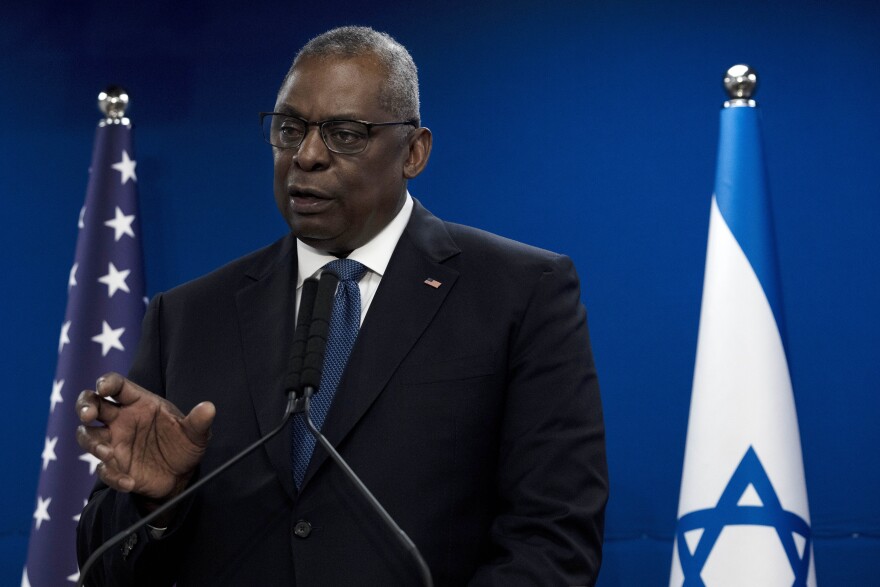Defense Secretary, and Mobile native, Lloyd Austin says he's eager to return to the Pentagon after being released from a hospital where he was treated for complications from surgery for prostate cancer he kept secret from President Joe Biden. Austin was released Monday and is expected to work from home as he recovers. The 70-year-old Austin was admitted to Walter Reed National Military Medical Center on December. 22 and underwent surgery to treat cancer detected earlier that month. Austin developed an infection and was hospitalized January 1. Biden found out three days later. Austin's lack of transparency has triggered reviews on procedures for when a Cabinet member must transfer decision-making authorities to a deputy, as Austin did.
Dr. John Maddox, the trauma medical director, and Dr. Gregory Chesnut, the director of the Center for Prostate Disease Research at Walter Reed, said that during Austin's hospitalization he underwent medical tests and was treated for lingering leg pain. They said he has physical therapy to do but there are no plans for further cancer treatment other than regular checks.
President Joe Biden and senior administration officials were not told about Austin's hospitalization until January 4, and Austin kept the cancer diagnosis secret until January 9. Biden has said Austin's failure to tell him about the hospitalization was a lapse in judgment, but the Democratic president insists he still has confidence in his Pentagon chief.
During Austin's time at Walter Reed, the U.S. launched a series of military strikes late last week on the Iranian-backed Houthis in Yemen, targeting dozens of locations linked to their campaign of assaults on commercial shipping in the Red Sea. Working from his hospital bed, Austin juggled calls with senior military leaders, including General Erik Kurilla, head of U.S. Central Command, and White House meetings to review, order and ultimately watch the strikes unfold over secure video.
The lack of transparency about Austin's hospitalization, however, has triggered administration and Defense Department reviews on the procedures for notifying the White House and others if a Cabinet member must transfer decision-making authorities to a deputy, as Austin did during his initial surgery and a portion of his latest hospital stay. And the White House chief of staff ordered Cabinet members to notify his office if they ever can't perform their duties.
Austin's secrecy also drew criticism from Congress members on both sides of the political aisle, and House member Mike Rogers, an Alabama Republican who is chairman of the House Armed Services Committee, said he has opened a formal inquiry into the matter. Others openly called for Austin to resign, but the White House has said the Pentagon chief's job is safe.
It is still unclear when Austin will return to his office in the Pentagon or how his cancer treatment will affect his job, travel and other public engagements going forward. Deputy Defense Secretary Kathleen Hicks has been taking on some of his day-to-day duties as he recovers.


